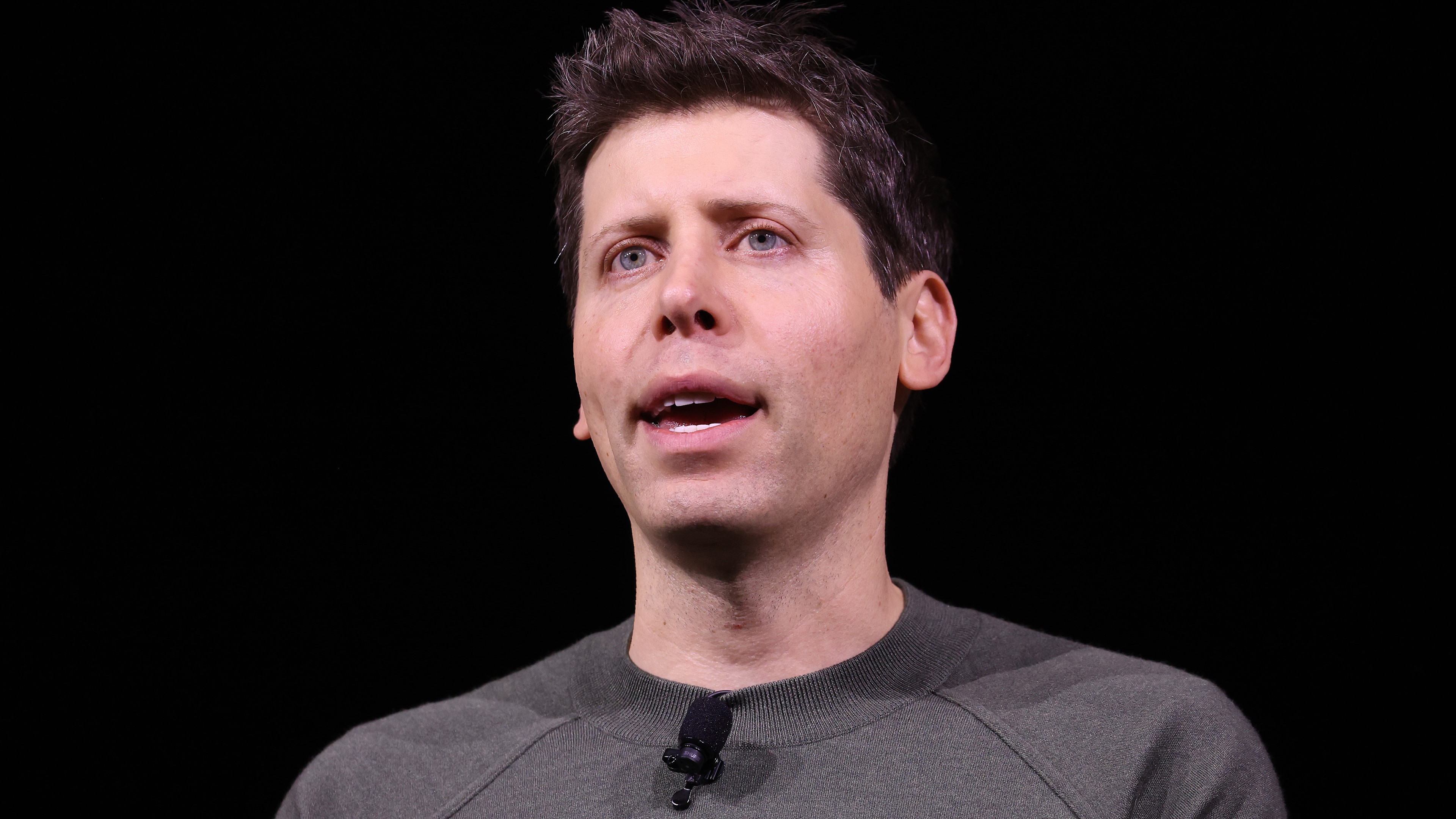Men are opening up about mental health to AI instead of humans
-
A profound relational revolution is underway, not orchestrated by tech developers but driven by users themselves. Many of the 400 million weekly users of ChatGPT are seeking more than just assistance with emails or information on food safety; they are looking for emotional support.
“Therapy and companionship” have emerged as two of the most frequent applications for generative AI globally, according to the Harvard Business Review. This trend marks a significant, unplanned pivot in how people interact with technology.
-
A profound relational revolution is underway, not orchestrated by tech developers but driven by users themselves. Many of the 400 million weekly users of ChatGPT are seeking more than just assistance with emails or information on food safety; they are looking for emotional support.
“Therapy and companionship” have emerged as two of the most frequent applications for generative AI globally, according to the Harvard Business Review. This trend marks a significant, unplanned pivot in how people interact with technology.
Not only men at all.
-
A profound relational revolution is underway, not orchestrated by tech developers but driven by users themselves. Many of the 400 million weekly users of ChatGPT are seeking more than just assistance with emails or information on food safety; they are looking for emotional support.
“Therapy and companionship” have emerged as two of the most frequent applications for generative AI globally, according to the Harvard Business Review. This trend marks a significant, unplanned pivot in how people interact with technology.
for me, beer with friends solves it
-
for me, beer with friends solves it
You have friends?
-
You have friends?
everyone’s a friend which drinks beer at the same table

-
A profound relational revolution is underway, not orchestrated by tech developers but driven by users themselves. Many of the 400 million weekly users of ChatGPT are seeking more than just assistance with emails or information on food safety; they are looking for emotional support.
“Therapy and companionship” have emerged as two of the most frequent applications for generative AI globally, according to the Harvard Business Review. This trend marks a significant, unplanned pivot in how people interact with technology.
It's stupid as hell to share any personal information with a company that is interested in spying on you and feeding your data to the nearest advertiser they can find.
Like seriously -- are people using their brains or what?
-
A profound relational revolution is underway, not orchestrated by tech developers but driven by users themselves. Many of the 400 million weekly users of ChatGPT are seeking more than just assistance with emails or information on food safety; they are looking for emotional support.
“Therapy and companionship” have emerged as two of the most frequent applications for generative AI globally, according to the Harvard Business Review. This trend marks a significant, unplanned pivot in how people interact with technology.
Men will talk to a chatbot instead of going to therapy
-
Not only men at all.
I don't think it's only men either, but it's worth considering the implications and potential causes for what is being said here.
We have had not decades but centuries of macho culture, where mental health is a taboo for men because "I strong, me no cry" and we know that mental health struggles go underreported on men. This is just adding more evidence to a symptom that we already know, of a society that hasn't been able to course correct because it's too set in tradition to allow those who need help to seek it without feeling like garbage.
While I'm not saying this is a problem exclusive to men, I think the causes and effects on women and men are rather different. We've now known for a while that women with mental health issues or disorders tend to go undiagnosed (even more so than unreported). The case of autism is particularly blatant, as women only started to get diagnosed in a meaningful proportion in the 80s (despite autism not being sex- or gender-driven). https://www.autism.org.uk/advice-and-guidance/topics/identity/autistic-women-and-girls
Similarly, that underdiagnosing came from the stereotyping of gender roles and the fact that being quiet and pretty equated being "feminine", which is "good", so can't be autistic, because autistic is bad.
-
I don't think it's only men either, but it's worth considering the implications and potential causes for what is being said here.
We have had not decades but centuries of macho culture, where mental health is a taboo for men because "I strong, me no cry" and we know that mental health struggles go underreported on men. This is just adding more evidence to a symptom that we already know, of a society that hasn't been able to course correct because it's too set in tradition to allow those who need help to seek it without feeling like garbage.
While I'm not saying this is a problem exclusive to men, I think the causes and effects on women and men are rather different. We've now known for a while that women with mental health issues or disorders tend to go undiagnosed (even more so than unreported). The case of autism is particularly blatant, as women only started to get diagnosed in a meaningful proportion in the 80s (despite autism not being sex- or gender-driven). https://www.autism.org.uk/advice-and-guidance/topics/identity/autistic-women-and-girls
Similarly, that underdiagnosing came from the stereotyping of gender roles and the fact that being quiet and pretty equated being "feminine", which is "good", so can't be autistic, because autistic is bad.
Fair, but it's still a shady title IMO.
Just a "... mental health too" would have made it both correct and more nuanced IMO.
-
Men will talk to a chatbot instead of going to therapy
Well if live America with no healthcare and add a stigma against therapy then yes I see how this happens. But even with healthcare a lot of them don't offer this ( my job that I miss did.) But without some kind of plan then it is super expensive to talk to a therapist.
-
A profound relational revolution is underway, not orchestrated by tech developers but driven by users themselves. Many of the 400 million weekly users of ChatGPT are seeking more than just assistance with emails or information on food safety; they are looking for emotional support.
“Therapy and companionship” have emerged as two of the most frequent applications for generative AI globally, according to the Harvard Business Review. This trend marks a significant, unplanned pivot in how people interact with technology.
Some people would rather yalk to something they know is fake than to talk to a person who may or may not be.
-
Well if live America with no healthcare and add a stigma against therapy then yes I see how this happens. But even with healthcare a lot of them don't offer this ( my job that I miss did.) But without some kind of plan then it is super expensive to talk to a therapist.
I don't think people who are in a precarious financial situation spend their time talking to chatbots, they are probably too busy for that
-
I go to a therapist and she treats me like a five year old.
I can literally just read her basic CBT training online, its not hard to find.
Then I do the excercises at home.
CBT being basically the only kind of approach to therapy that is actually empirically shown to reliably actually help most people.
Oh, you're seeking an therapist qualified and specialized for high functioning autists?
There aren't any in the state anymore.
...
I also think that using ChatGPT as a therapist is a fucking horrible idea, but uh, therapy in America is expensive, and often shit quality, oh and they just hand out pills that you'll become dependent on, willy nilly, as opposed to trying everything else first and using that as a last resort.
-
Not only men at all.
Well it was men's mental health month. Funny how I just found that out today. But please, let's talk about women's mental health issues.
-
I go to a therapist and she treats me like a five year old.
I can literally just read her basic CBT training online, its not hard to find.
Then I do the excercises at home.
CBT being basically the only kind of approach to therapy that is actually empirically shown to reliably actually help most people.
Oh, you're seeking an therapist qualified and specialized for high functioning autists?
There aren't any in the state anymore.
...
I also think that using ChatGPT as a therapist is a fucking horrible idea, but uh, therapy in America is expensive, and often shit quality, oh and they just hand out pills that you'll become dependent on, willy nilly, as opposed to trying everything else first and using that as a last resort.
Yeah but have you tried going out in the sun? You can have that tip free of charge!
-
I don't think it's only men either, but it's worth considering the implications and potential causes for what is being said here.
We have had not decades but centuries of macho culture, where mental health is a taboo for men because "I strong, me no cry" and we know that mental health struggles go underreported on men. This is just adding more evidence to a symptom that we already know, of a society that hasn't been able to course correct because it's too set in tradition to allow those who need help to seek it without feeling like garbage.
While I'm not saying this is a problem exclusive to men, I think the causes and effects on women and men are rather different. We've now known for a while that women with mental health issues or disorders tend to go undiagnosed (even more so than unreported). The case of autism is particularly blatant, as women only started to get diagnosed in a meaningful proportion in the 80s (despite autism not being sex- or gender-driven). https://www.autism.org.uk/advice-and-guidance/topics/identity/autistic-women-and-girls
Similarly, that underdiagnosing came from the stereotyping of gender roles and the fact that being quiet and pretty equated being "feminine", which is "good", so can't be autistic, because autistic is bad.
The performative masculinity of many men is also reinforced by partriarchichal norms in many women, who consistently belittle men who attempt to express their emotions without judgement, who demand macho men, who belittle men who aren't financially better off than them.
Men can't talk to most men, and they can't talk to most women, society in general still largely demands they conform to the 'bottle it all in, buck up and deal with it' norm that is so very obviously harmful to men, and whoever they eventually take it out on when they have a breakdown.
... These are broad generalizations, but they are still broadly accurate.
Yep, the psychology industry/field has been unfair to women for a long, long time, often hideously so.
But no widespread progress on deconstructing and at least softening male machismo norms will be possible until we as a society acknowledge that... men are not the only sex/gender that often have ingrained patriarchal norms.
-
Yeah but have you tried going out in the sun? You can have that tip free of charge!
Wow thanks, I never would have thought of that!!!!
Oh jeez, the copay is... $80 bucks?
Boy, I could have just looked that up on the interwebz... uh, outside, of course, on a laptop.
-
A profound relational revolution is underway, not orchestrated by tech developers but driven by users themselves. Many of the 400 million weekly users of ChatGPT are seeking more than just assistance with emails or information on food safety; they are looking for emotional support.
“Therapy and companionship” have emerged as two of the most frequent applications for generative AI globally, according to the Harvard Business Review. This trend marks a significant, unplanned pivot in how people interact with technology.
Almost like questioning an AI is free while a therapist costs a LOT of money.
-
Almost like questioning an AI is free while a therapist costs a LOT of money.
Yeah, but also one of them is helpful and the other is the exact opposite. If the choices are AI therapist or no therapist, you are still better off with no therapist.
-
A profound relational revolution is underway, not orchestrated by tech developers but driven by users themselves. Many of the 400 million weekly users of ChatGPT are seeking more than just assistance with emails or information on food safety; they are looking for emotional support.
“Therapy and companionship” have emerged as two of the most frequent applications for generative AI globally, according to the Harvard Business Review. This trend marks a significant, unplanned pivot in how people interact with technology.
Look, if you can afford therapy, really, fantastic for you. But the fact is, it's an extremely expensive luxury, even at poor quality, and sharing or unloading your mental strain with your friends or family, particularly when it is ongoing, is extremely taxing on relationships. Sure, your friends want to be there for you when they can, but it can put a major strain depending on how much support you need. If someone can alleviate that pressure and that stress even a little bit by talking to a machine, it's in extremely poor taste and shortsighted to shame them for it. Yes, they're willfully giving up their privacy, and yes, it's awful that they have to do that, but this isn't like sharing memes... in the hierarchy of needs, getting the pressure of those those pent up feelings out is important enough to possibly be worth the trade-off. Is it ideal? Absolutely not. Would it be better if these systems were anonymized? Absolutely. But humans are natural anthropomorphizers. They develop attachments and build relationships with inanimate objects all the time. And a really good therapist is more a reflection for you to work through things yourself anyway, mostly just guiding your thoughts towards better patterns of thinking. There's no reason the machine can't do that, and while it's not as good as a human, it's a HUGE improvement on average over nothing at all.
-
-
-
OpenAI just launched its new ChatGPT Agent that can make as many as 1 complicated cupcake order per hour, but even Sam Altman says you probably shouldn't trust it for 'high-stakes uses'
Technology 1
1
-
Bill Atkinson, visionary engineer behind the Apple Macintosh operating system, dies at 74
Technology 1
1
-
-
-
-
Mozilla is Introducing 'Terms of Use' to Firefox | Also about to go into effect is an updated privacy notice
Technology 1
1

